Shortly after the article on the Tradition of Detroit Firemen’s Field Day our friend, retired Detroit Firefighter Wayne Isken, emailed pictures of Field Day tickets from various years. These tickets give clues to how Field Day has evolved throughout the years. You can also see how popular culture and current events influenced Field Day.

A Tradition Begins With Baseball
1922 – The first Detroit Firemen’s Field Day was a one day event held at Naven Field (Michigan & Trumbull). Tickets cost $1.00 and were war tax exempt. The event began to raise funds for the Detroit Firemen’s Fund Association for the benefit of injured Detroit Firefighter, and firefighters’ widows and children.
In the 1920’s baseball entered it’s golden era of popularity, so it is no surprise that one of the main attractions of the early Firemen’s Field Day events was Baseball.
|
Read more about the many factors that made baseball popular in the 20’s here. Also in 1922:
|
The Depression Era
1933 – No field day was held. The reasons for this are unclear. More than likely that year’s field day was another causality of the depression. 1933 was the worst year of the depression. During this time of such widespread economic hardship, it would have been very difficult to get enough tickets sold for a successful fundraising event.
|
Also in 1933 – |
1937 – By this time Detroit Firemen’s Field Day had become a two day event featuring Class “A” Baseball and other amusements. Tickets prices decreased from the original $1.00 to just $.50 each. Nine cars from a variety of popular manufacturers and one trailer were given away.
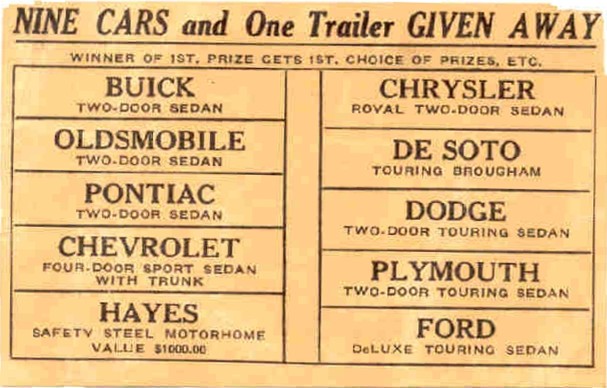
It is interesting to note how the ticket describe of some of the prize items. The Chevrolet was described as a four-door sports sedan with trunk. In the 1930’s vehicles were just starting to have trunks integrated into their designs. This would have been a relatively new, popular feature to a car.
The trailer description, a Hayes Safety Steel Motorhome value $1,000, is also interesting. In 1937 the average price of a new car was $ 760. The term motorhome refers to a travel trailer or camper. In the 1930’s travel trailer were the hottest trend so it is no surprise that one was included as a prize.
|
Watch this video to see how nice a 1937 Hayes trailer would have been. Also in 1937 –
|
1938 – Field day remained much the same as previous years. Although the event’s physical location (Michigan and Trumbull) remained the same, the stadium had changed. It now had a upper deck, expanding it’s capacity to 53,000 and it’s name was changed to Briggs Stadium.
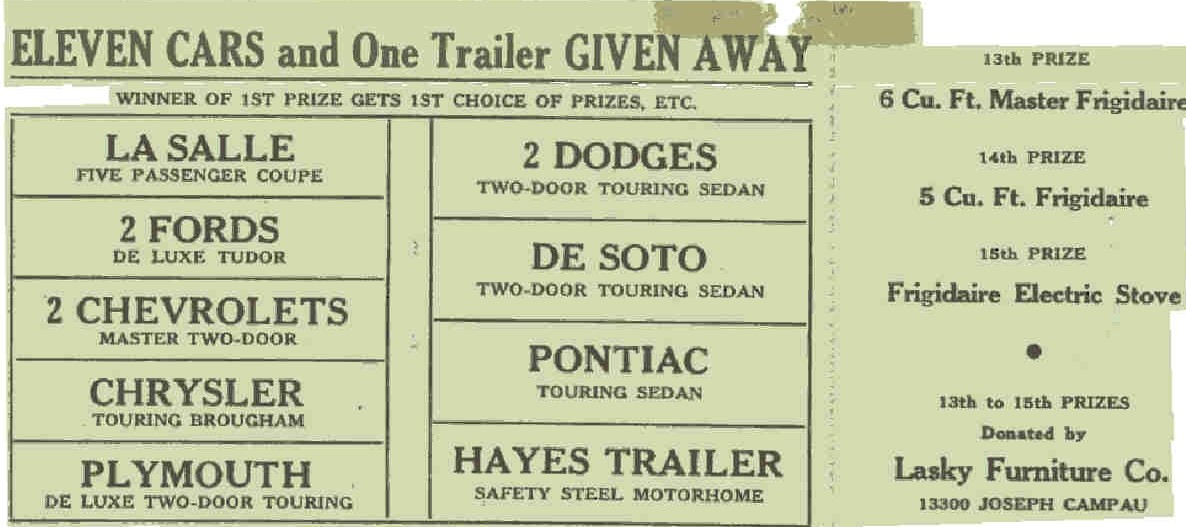
This year’s give away increase to 15 prizes: 11 cars, 1 trailer, 2 Frigidaires, and an electric stove. The introduction of Freon on the 1920’s lead the way for the safe in home use of refrigerators in the 1930‘s. It wasn’t until the 1950’s that wide spread household use was common. Likewise, as more homes began being wired with electricity in the 1930’s, household use of electric stoves became more common. These prizes would have been a big hit with the winners.
|
Also in 1938:
|
America’s Involvement in WW II is Looming
1940- Field Day activities remained same. This years prizes now all cars. A total of 14 were given away. One of the cars awarded was manufactured by Graham. 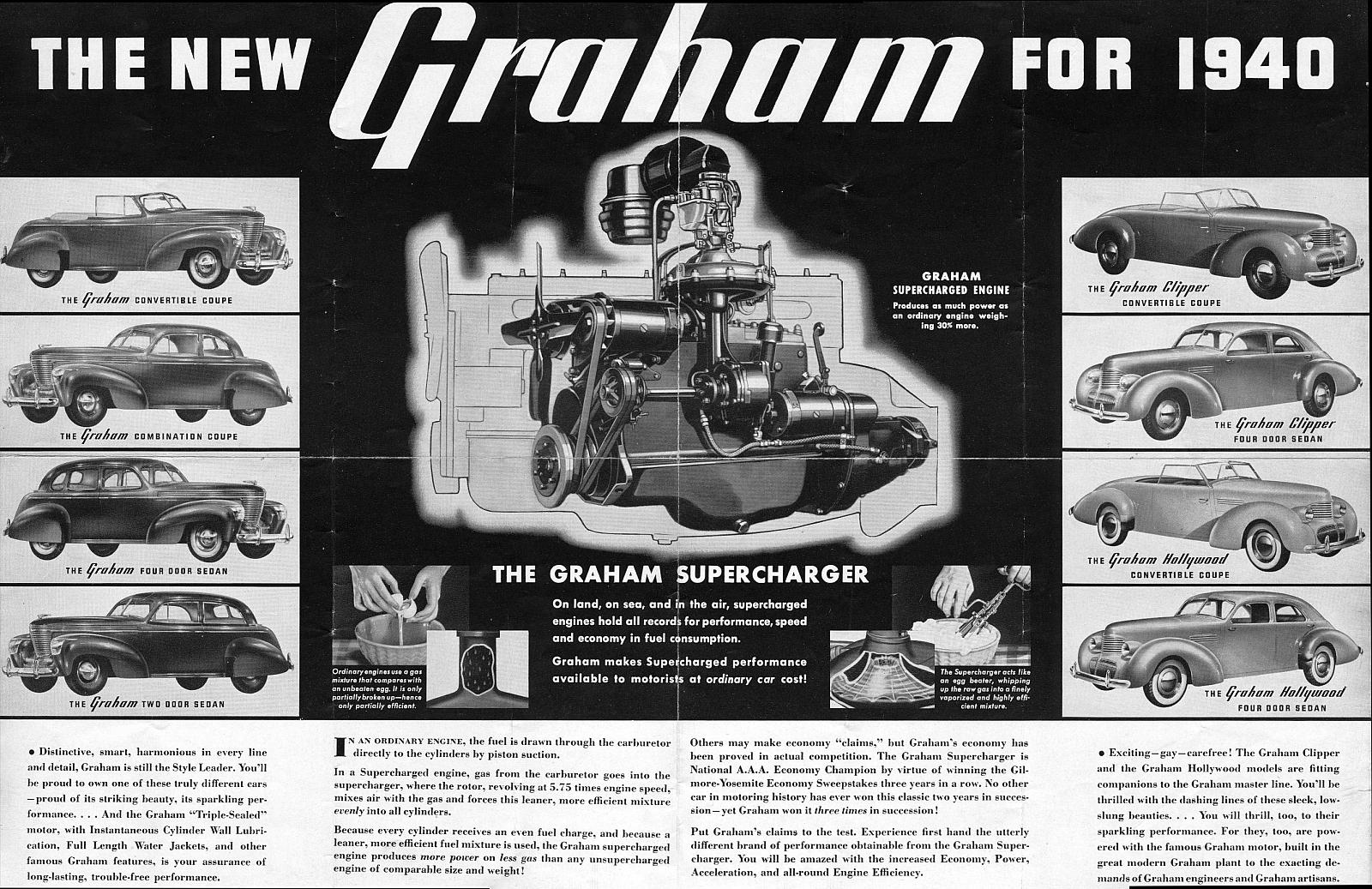
Also in 1940 –
|
1941 – At the end of August 1941’s Detroit Firemen’s Field Day took place. American had not yet entered World War II, but there were ominous signs of America’s future involvement looming on the horizon. Just a few months after the event, Pearl Harbor was attacked and America entered the war.
In 1941 the picture on the front of the field day tickets changed from previous years. This year’s tickets were far more patriotic than previous years. It included an American flag and a saluting firefighter.
Prizes awarded were 18 cars, a Kelvinator refrigerator , Philco radio, and 2 mattresses. This was the first year a Willy’s vehicle was awarded. Willy’s jeeps were also introduced for use by the US Army in 1941.
|
See a 1941 Willy’s automobile at this link Also in 1941
|
Visit our RESOURCES PAGE for answers to the
most common questions we get.
Coming in future posts: How the World War II era changed Field Day, Post War 1940’s and the 1950’s Field Day
Field Day ticket pictures provided by Detroit Fire retiree Wayne Isken. Wayne writes the Wayne’s Stuff articles you may have seen. His articles are geared toward stirring the memories of the department retirees with his “Do you remember….” questions. For those of us who were not around during those days they hold a wealth of information about how things use to be. I strongly encourage you to take a look at his writings. They can be found at his website waynesstuff.weebly.com and on detroitfirefighters.net.
Visit our RESOURCES PAGE for answers to the
most common questions we get.
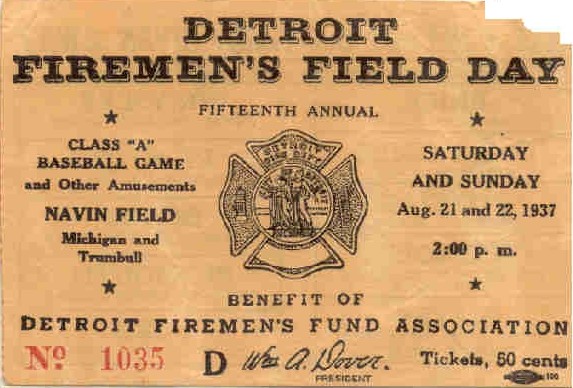
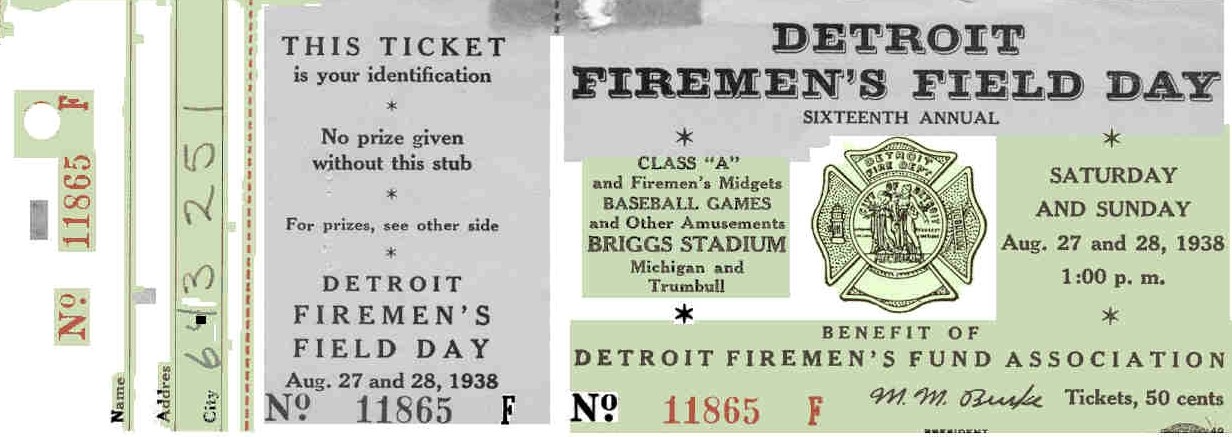
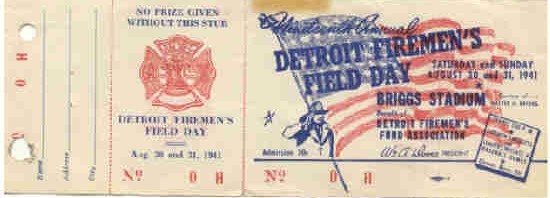
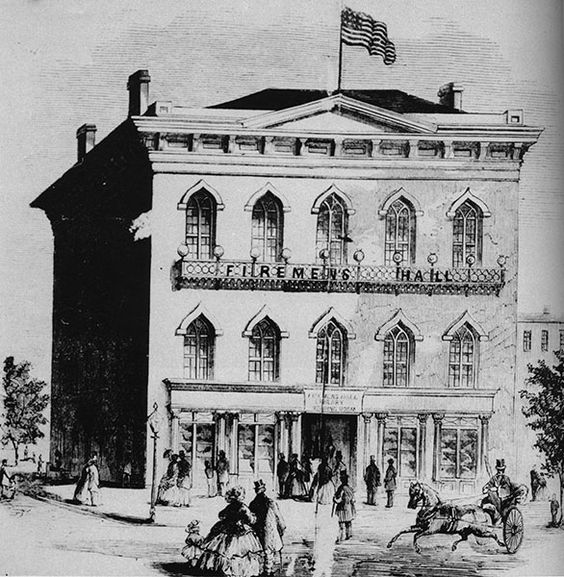
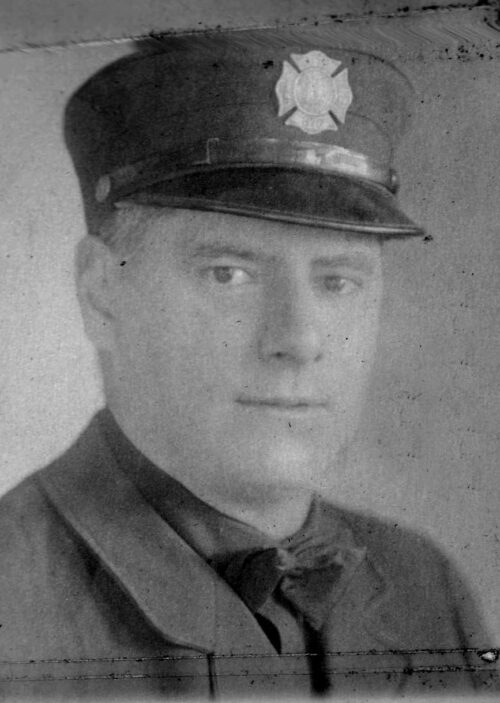
One thought on “Detroit Firemen’s Field Day Tickets – A Historical Perspective – 1922 to Pre World War II”